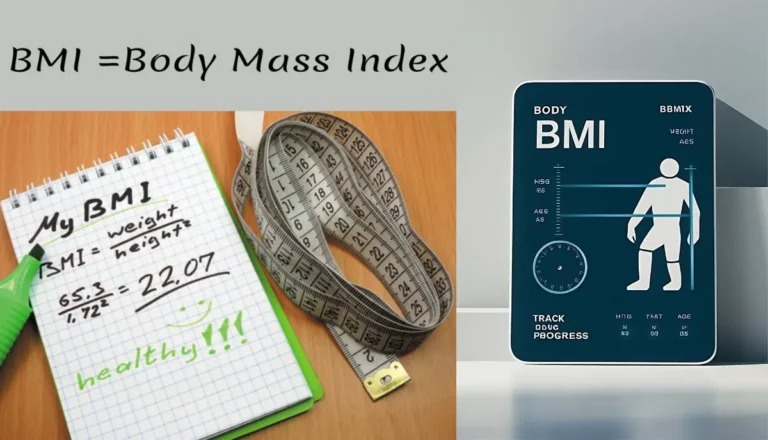Disclaimer: I have affiliate links in this post and receive a commission on any purchases you make at no cost to you. It’s one of the ways I support my site.
In today’s world, we have endless food choices right at our fingertips. Yet, many struggle with making healthy eating choices. Intermittent fasting offers a new way to eat that’s different from traditional diets. It helps people take back control over their eating habits and feel clearer in mind and body.
This method isn’t just a new trend. It’s a way to connect with our natural eating habits from long ago. Our ancestors survived by eating when they could, but not always. This approach could be the key to better health for many.
More and more people are trying intermittent fasting for its health perks. It can help with weight loss and reduce inflammation, which is linked to many diseases. This guide will explore different ways to fast and why it’s important to find what works best for you.
What is Intermittent Fasting?
Intermittent fasting is a way to eat where you alternate between fasting and eating. It’s different from diets that focus on what you eat. Instead, it’s about when you eat, making it easy for many to follow.
There are many ways to do intermittent fasting. The 16/8 method is popular, where you fast for 16 hours and eat for 8 hours. The 5/2 diet lets you eat normally for five days and fast for two days. Then there’s alternate-day fasting, where you eat for five to six days and fast for one to two days.
Fasting has been around for centuries in many cultures for health and spiritual reasons. Today, it’s back in style for health and fitness. People are looking into how it can help with weight management and wellness.
Those who try this eating pattern often eat healthy during their eating times. They choose foods like fruits, veggies, whole grains, lean meats, plant proteins, and low-fat dairy. Eating this way can help you get more nutrients and eat less, which can lead to weight loss.
Intermittent fasting can also help with weight loss and reduce inflammation. But, it’s a good idea to talk to a doctor before starting, especially if you’re on medication or have health issues. Knowing about intermittent fasting helps you make smart choices about adding it to your life.
Types of Intermittent Fasting

Intermittent fasting offers various methods for different lifestyles and health goals. Each method has its benefits and flexibility. This lets people pick fasting options that fit their daily life.
- 16/8 Method: This method means fasting for 16 hours and eating for 8 hours. Many find it helpful, especially those who had trouble with a 12-hour fast.
- 5:2 Diet: This plan lets you eat normally for five days and limit calories to 500-600 on two days. People often see weight loss and better insulin sensitivity.
- Alternate-Day Fasting: This involves alternating between eating normally and fasting or eating very little. Studies show it can lead to a lot of weight loss.
- Eat-Stop-Eat: This method includes a 24-hour fast once or twice a week. It cuts down on calories without limiting food choices.
- Warrior Diet: This involves fasting for 20 hours and eating one big meal. It can be tough but rewarding for some.
- One Meal A Day (OMAD): This method means eating one big meal and fasting for 23 hours. It aims to make the eating window more effective and food planning easier.
Knowing about the different fasting schedules helps people choose what works best for them. Each method can have different effects, so it’s important to pick one that fits your life and preferences. Here’s a table that summarizes the main features of each fasting method:
| Fasting Method | Eating Window | Fasting Days | Notable Benefits |
|---|---|---|---|
| 16/8 Method | 8 hours | Daily | Flexible, easy to maintain |
| 5:2 Diet | 5 days normal, 2 days restricted | 2 non-consecutive | Weight loss, improved insulin sensitivity |
| Alternate-Day Fasting | Normal, minimal calories | Every other day | Significant weight loss potential |
| Eat-Stop-Eat | 24-hour fast | Once or twice a week | Reduces overall calorie intake |
| Warrior Diet | 20 hours fasting, 1 large meal | Daily | Allows for substantial meal |
| One Meal A Day (OMAD) | 1 hour | Daily | Simplifies eating schedule |
Intermittent Fasting for Beginners
For those new to intermittent fasting, it’s key to know the different methods. There are easy-to-follow protocols that offer flexibility. Picking a method that fits your lifestyle can make fasting easier and more effective.
Getting Started with the 16/8 Method
The 16/8 method is a simple way to start fasting. You fast for 16 hours a day and eat during an 8-hour window. Many skip breakfast, eating from noon to 8 PM.
This schedule lets you enjoy nutritious foods and control calories. It’s important to eat whole, nutrient-rich foods during your eating time. Studies show this diet can reduce hunger and help with weight loss without making you feel hungry.
Understanding the 5:2 Diet
The 5:2 diet is another good choice for fasting beginners. You eat normally for five days and eat less on two days. Women eat about 500 calories on fasting days, and men eat around 600 calories.
This plan is flexible, letting you enjoy your favorite foods on regular days. On fasting days, it’s important to plan your meals carefully to stay within calorie limits.
| Method | Eating Window/Fasting Days | Typical Caloric Intake on Fasting Days | Benefits |
|---|---|---|---|
| 16/8 Method | 8 hours (usually noon to 8 PM) | Regular intake on eating days | Reduced hunger, stable energy levels |
| 5:2 Diet | Normal eating for 5 days, low calories for 2 | 500-600 calories on fasting days | Flexibility, manageable caloric reduction |
Choosing the right method is key to making fasting work for you. The 16/8 method or the 5:2 diet can help beginners start on the right foot. Success comes from eating a varied and nutritious diet that fits your needs and tastes.
Health Benefits of Intermittent Fasting

Intermittent fasting is becoming more popular for its many health benefits. It helps with weight loss and boosts metabolic health. This leads to better insulin sensitivity and brain function.
Weight Loss and Body Composition
One key benefit of intermittent fasting is its help with weight loss. Studies show people who fast can lose a lot of weight. For example, a 12-week study of 131 people with obesity found a 9% weight loss.
Other studies show weight loss ranging from 0.8% to 13%. The 16:8 method didn’t lead to more weight loss than eating three meals a day. But it did help reduce lean mass.
Improved Insulin Sensitivity
Intermittent fasting also helps make insulin more effective. It lowers fasting blood sugar levels by about 0.15 millimoles per liter. The effects can differ by gender, helping men more than women in some cases.
This leads to better insulin sensitivity and helps keep metabolic health in check.
Brain Health and Cognitive Function
Intermittent fasting is good for the brain too. Studies on animals suggest it can help grow new nerve cells, improving brain function. It may also protect against diseases like Alzheimer’s and Parkinson’s.
Plus, it could help improve memory. This makes it a good addition to a regular diet.
How Intermittent Fasting Works

Intermittent fasting changes the body in many ways, making it healthier. It starts a big shift in how the body uses energy, known as metabolic switching. When you fast, your body moves from using glucose to fat for energy. This happens because insulin levels drop, making it easier to use stored fat.
People fasting often sleep for about seven hours, adding to the fasting time. Some fast for 12 hours a day, while others do alternate-day fasting. This means eating normally for a few days and eating less for a day or two. These methods can lead to losing fat and improving how the body looks.
But fasting isn’t just about losing weight. It can also help lower bad cholesterol, reduce inflammation, and lower blood pressure. As you get used to fasting, you might feel more energetic and focused. This is because your cells are repairing and regenerating during fasting.
To get the most from fasting, eat well when you do eat. This makes fasting a good way to improve your health. People who fast often say they have more muscle and perform better physically. This shows how fasting can help reach fitness goals.
| Fasting Method | Description | Duration |
|---|---|---|
| 16/8 Method | Eat during an 8-hour window; fast for 16 hours. | Daily |
| 5:2 Diet | Normal eating for five days; restrict calories for two non-consecutive days. | Weekly |
| Alternate Day Fasting | Eat regularly on some days; fasting on others. | Weekly |
Before starting intermittent fasting, talk to a healthcare professional. They can help make sure it’s safe for you and help you get the most benefits. Everyone’s experience is different, but many find fasting a good way to change their lifestyle for the better.
Side Effects and Considerations
Intermittent fasting has many health benefits, but it can also have side effects. These side effects include hunger and fatigue, especially when you first start. It’s important to know about fasting safety, especially for certain groups that might be at risk.
Hunger and Fatigue
Many studies have looked into the side effects of intermittent fasting. A 2020 study with 1,422 participants found that hunger was a big issue at first but got better over time. A 2018 study showed that people fasting had more hunger than those eating normally, making it a tough start.
Fatigue is another common issue. It happens as your body gets used to burning fat for energy. A 2020 study found that people felt tired at first but got better. Some also felt irritable and had headaches, showing why it’s key to be aware of these effects.
Potential Risks for Specific Populations
Some groups should be careful with intermittent fasting. This includes pregnant women, kids, and people with diabetes or eating disorders. Those who should avoid it include:
- Pregnant or breastfeeding individuals
- People over 65 years of age
- Individuals with type 1 diabetes
- People taking certain diabetes medications
- Individuals with heart, kidney, or liver diseases
- Those with a history of eating disorders
- Individuals with low blood pressure
- Anyone on blood thinners or blood pressure medications
It’s important to think about safety and avoid bad effects. Always talk to a doctor before starting intermittent fasting, especially if you’re in one of these groups.
| Side Effect | Description |
|---|---|
| Hunger | Common during the initial adaptation but tends to decrease over time. |
| Fatigue | Can occur initially but may improve with time and adjustment. |
| Headaches | Difficulties falling asleep were reported by some participants during fasting. |
| Irritability | Feelings of irritability may surface but can be fleeting. |
| Sleep disturbances | Difficulties falling asleep reported by some participants during fasting. |
| Dehydration | Potential risk during fasting periods without adequate hydration. |
Tips for Success with Intermittent Fasting

Success with intermittent fasting comes from smart planning, especially with hydration and meal prep. Drinking enough water is key to feeling good and focused. It helps fight hunger and keeps your energy up. Drinking water, herbal teas, or black coffee is a good way to stay hydrated while fasting.
Staying Hydrated During Fasting Periods
Drinking enough water is vital during fasting. It can help control hunger and make fasting easier. Adding ginger tea can also help with cravings. Drinking fluids regularly makes fasting days easier to handle.
Planning Your Meals Effectively
Planning meals is crucial for intermittent fasting. Eating nutrient-rich foods during your eating times boosts health benefits. Focus on proteins, healthy fats, and fiber to keep your energy up and feel full. Here are some good meal choices:
| Food Type | Benefits |
|---|---|
| Lean Proteins (e.g., chicken, tofu) | Helps in muscle repair and keeps you full longer. |
| Healthy Fats (e.g., avocados, nuts) | Provide long-lasting energy and satiety. |
| High-Fiber Vegetables (e.g., spinach, broccoli) | Aids digestion and contributes to a feeling of fullness. |
| Whole Grains (e.g., quinoa, brown rice) | Offer sustained energy without spikes in blood sugar. |
Using these tips can help you make fasting a lasting part of your life. Tailor your meal planning to fit your likes and schedule. This makes fasting more effective and fun.
Common Misconceptions about Intermittent Fasting

Many people think intermittent fasting is not good, but this isn’t true. Skipping meals can actually help you eat healthier and understand when you’re hungry. Studies show it’s a good way to eat better.
Some think fasting makes you lose muscle. But, research says that with enough protein and exercise, you can keep or even grow your muscles. Fasting also helps make growth hormone, which is key for muscle health.
Some worry that fasting might lead to eating disorders. However, studies from 2023 and 2019 found no link in healthy adults. It can help with weight loss, with most weight loss coming from fat, not muscle.
Some believe fasting means eating poorly. However, a 2024 review found no drop in diet quality for those fasting. This proves that fasting doesn’t lead to bad eating habits.
Fasting can also improve your metabolic health and help control blood sugar. A 2023 study showed it could help people with type 2 diabetes. More research is needed, but it looks promising.
Conclusion
This look into intermittent fasting shows it has many benefits worth thinking about. It could help with weight loss, improve metabolic health, and boost brain function. Studies like those by Heilbronn et al. (2005) and Bhutani et al. (2013) highlight how it can change body composition and heart health for the better.
But, it’s important to remember that everyone is different. The success of intermittent fasting depends on many factors, including your health, lifestyle, and how your body reacts. To get the most out of it, mix fasting with healthy eating and regular exercise for better health overall.
In the end, remember that fasting is not just about cutting calories. It’s about making better food choices and focusing on a healthy lifestyle. This approach can lead to lasting health benefits.
Frequently Asked Questions
Q: What is intermittent fasting?
A: Intermittent fasting involves alternating periods of fasting and eating. It may help with fat loss and weight management by regulating your eating schedule and calorie intake.
Q: How does intermittent fasting work for weight loss?
A: Intermittent fasting may help you lose weight. It restricts when you can eat, which can reduce your calorie intake. This can promote fat loss and improve body weight management.
Q: What are the health benefits of intermittent fasting?
A: Intermittent fasting may improve health. It could boost metabolism, reduce inflammation, and improve heart health. It might also help us live longer. The effects of intermittent fasting can vary from person to person.
Q: What are some common intermittent fasting methods?
A: Common intermittent fasting methods include: 1. The 16/8 method. Fast for 16 hours and eat in an 8-hour window. 2. Alternate-day fasting. Fast every other day. 3. The 5:2 method. Eat normally for five days and restrict calories to two days.
Q: What can I eat while intermittent fasting?
A: After the fast, eat nutritious foods to support your health and energy. Eat whole foods: vegetables, fruits, lean proteins, healthy fats, and whole grains.
Q: What is an intermittent fasting schedule?
A: An intermittent fasting schedule outlines specific times for fasting and eating. For example, the 16/8 method involves fasting for 16 hours overnight. You eat all meals within an 8-hour window.
Q: Are there side effects of intermittent fasting?
A: Some may have side effects from intermittent fasting. These include hunger, fatigue, irritability, and poor focus. It’s important to start gradually and listen to your body.
Q: How do I get started with intermittent fasting?
A: To get started with intermittent fasting, choose a method that suits your lifestyle. Begin with shorter fasting periods and gradually increase the duration. It’s advisable to consult a healthcare provider before making significant dietary changes.
Q: Can intermittent fasting help with weight management?
A: Yes, intermittent fasting may help with weight management. It can promote better eating habits and reduce calorie intake. It can also aid in maintaining a healthy weight over the long term.
Q: What are the effects of intermittent fasting on overall health?
A: Intermittent fasting can improve health. It may boost insulin sensitivity, reduce inflammation, and increase metabolism. It might also help with weight loss. Always pair fasting with a balanced diet for optimal results.








